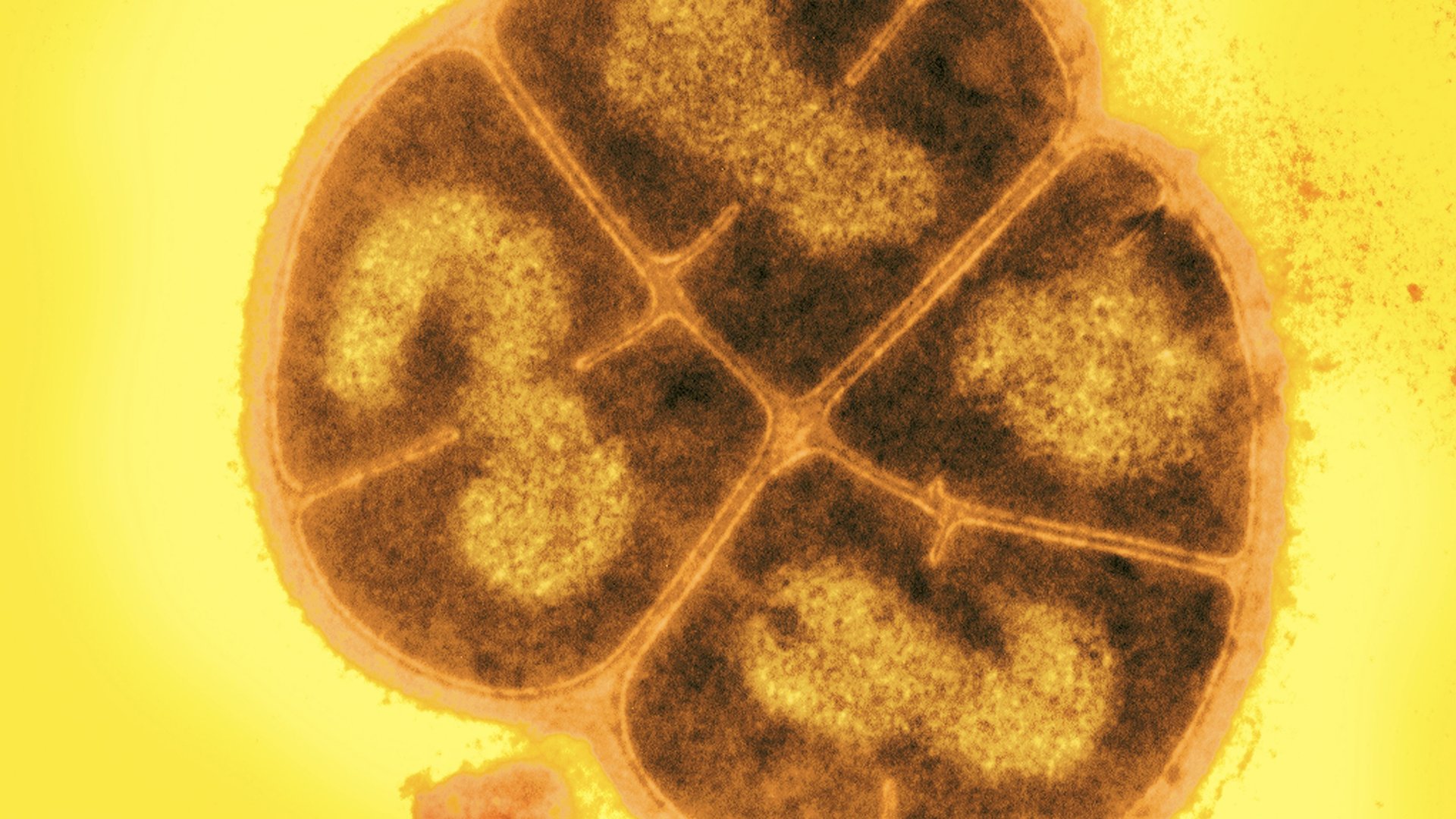The Guinness Book of World Records says that Deinococcus radiodurans is the world’s most extremophile bacterium. As its name suggests, this bacterium can deal with radiation. It has even been found on the inside walls of nuclear reactors.
The Guinness Book of World Records says that Deinococcus radiodurans is the world’s most extremophile bacterium. As its name suggests, this bacterium can deal with radiation. It has even been found on the inside walls of nuclear reactors.
Fascination with these survivors
Scientists have been fascinated by these tough bacteria for years. The microbes can deal with extreme cold, lack of water, vacuums and high acidity. And how is it that it can also withstand extreme radiation despite the fact that radiation does not occur in the natural world?
Back-up against mutations
Since they started researching its genome, scientists have discovered various mechanisms in the bacterium which protect it against mutation. D. radiodurans has within it, for example, multiple copies of its genome. If just one of these remains unchanged, it can survive. D. radiodurans also has an extremely efficient DNA repair mechanism.
Learning from bacteria
Genetic mutations have major consequences for mankind. Human cells only have one copy of the genome and do not have D. radiodurans’ quick and efficient DNA repair mechanism. It is possible that we could learn a lot from this bacterium. For example, research into the micro-organism could lead to medical applications to protect people better against the terrible results of radiation poisoning.

